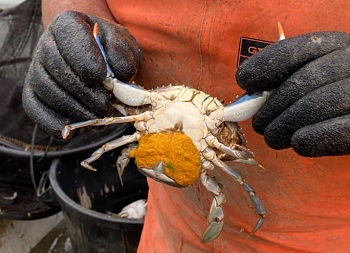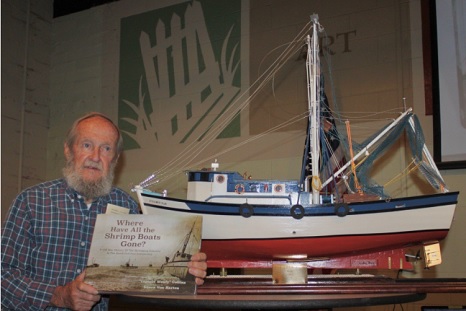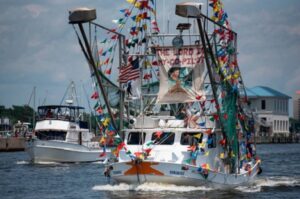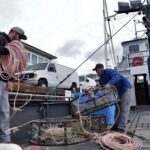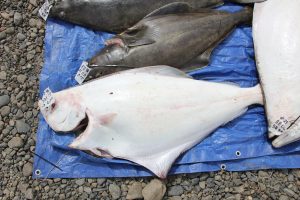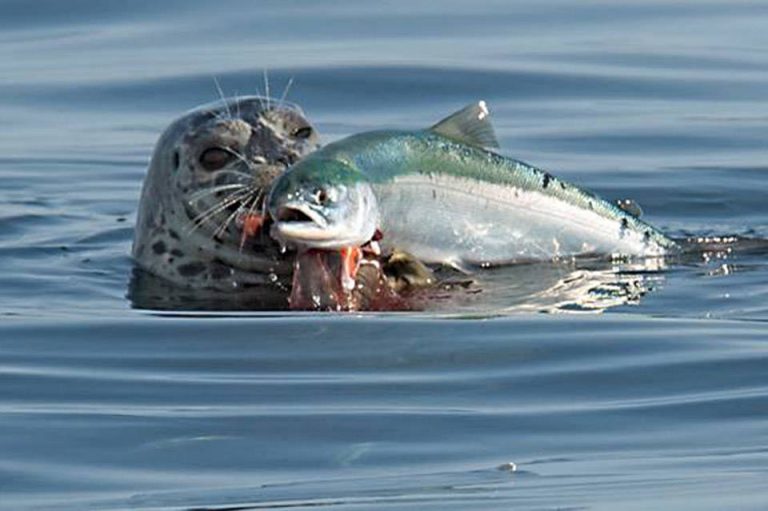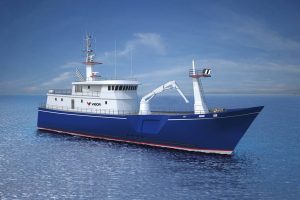Category Archives: South Atlantic
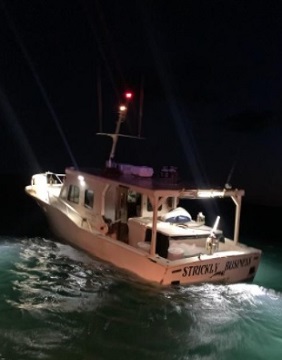
Coast Guard rescues 2 from vessel on fire, taking on water 9 miles off Bulls Bay
A Coast Guard Station Charleston rescue crew saved two people after their fishing vessel caught fire and began taking on water approximately 9 miles east of Bulls Bay, Friday. The captain of the vessel, F/V Strictly Business, hailed Sector Charleston watchstanders via marine radio Channel 16 at 4:03 a.m., stating his 45-foot fishing vessel was on fire and taking on water. The captain activated his Emergency Position Indicating Radio Beacon (EPIRB) and switched to his satellite phone after losing communication on his VHF radio >click to read< 11:49
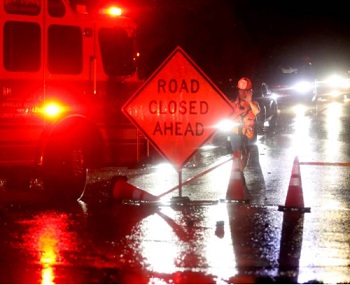
It’s Very Bad. Incredible Hurricane Ida’s remnants swamp Northeast; at least 8 deaths linked to flooding
The remnants of Hurricane Ida dumped historic rain over New York City, with at least nine deaths linked to flooding in the region, as it swamped subway cars and submerged vehicles and homes. Catastrophic weather came to the largest city in the U.S. after a grim two weeks across the nation that has seen 20 dead in flooding in a small Tennessee town, wildfires threatening Lake Tahoe, Tropical Storm Henri in the Northeast and Ida’s landfall in Louisiana, which left 1 million people without power, maybe for weeks. Earlier Wednesday, the storm blew through the mid-Atlantic states with at least two tornadoes, heavy winds and drenching rains,,, >click to read< 08:09
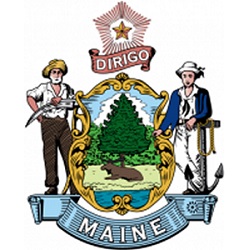
From the Office of Governor Janet T. Mills – A Letter to the Lobster Industry
In Letter to Lobster Industry, Governor Mills Calls Right Whale Rule “Extremely Disappointing” & Pledges to Work with Maine’s Congressional Delegation to Fight It. – September 1, 2021. In the wake of yesterday’s National Marine Fisheries Service’s Atlantic Large Whale Take Reduction Rule, Governor Janet Mills last night sent a letter to Maine’s lobster industry expressing solidarity with them and calling the rule “extremely disappointing”. In the letter to Maine’s lobster harvesters, dealers, and processors, Governor Mills pledges to work with Maine’s Congressional Delegation to determine the best way to address the industry’s and administration’s concerns: >click to read< 14:24
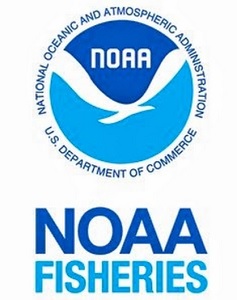
Pot/Trap Fisheries Regulations to Help Save North Atlantic Right Whales Announced
NOAA Fisheries and our partners are dedicated to conserving and rebuilding the North Atlantic right whale population, which is endangered, declining, and experiencing an ongoing Unusual Mortality Event. Entanglement in commercial fishing gear is a primary cause of mortalities and serious injuries of North Atlantic right whales. Working with the Atlantic Large Whale Take Reduction Team, a group of advisors consisting of fishermen, scientists, conservationists, and state and federal officials, we have completed Phase 1 of the modifications to the Atlantic Large Whale Take Reduction Plan to continue to reduce whale entanglements. Today, we are announcing the final rule to modify the Atlantic Large Whale Take Reduction Plan. >click to read< 15:22
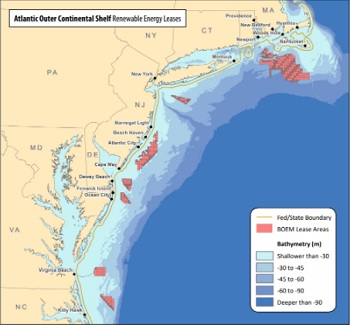
Offshore wind opposition is growing From N.E. to N.C. – Nantucket Wind Suit May Have Virginia Echoes
A group of Nantucket Island, Massachusetts residents have filed suit challenging the pre-construction environmental review on a massive offshore wind complex planned off its shores. The issues raised may have a direct impact on the similar wind energy project planned off Virginia Beach, which is only now beginning its environmental impact process.,, The umbrella group is using the name “Coalition for Ocean Protection and Safety.” The Nantucket group, playing off the code designation for its local airport, call themselves ACK RATS, with the RATS standing for Residents Against Turbines. The wind developments there are not 27 miles offshore the way it is planned in Virginia. >click to read<
Video: Shop in Shallotte creates nets for fishermen from the Pamlico Sound to Keys West
 It’s one of the last shops of its kind, a little place in Shallotte that makes and repairs big nets fishermen use to catch shrimp. They sew them by hand for shrimpers up and down the coast. >click to watch< 12:15
It’s one of the last shops of its kind, a little place in Shallotte that makes and repairs big nets fishermen use to catch shrimp. They sew them by hand for shrimpers up and down the coast. >click to watch< 12:15
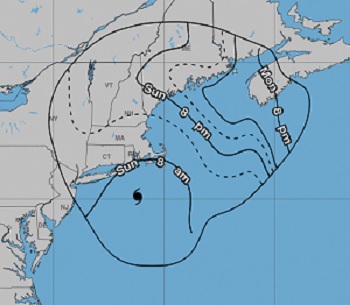
Tropical Storm Henri Public Advisory
At 800 AM EDT, the center of Tropical Storm Henri was located by reconnaissance aircraft and NOAA Doppler weather radars near latitude 40.7 North, longitude 71.3 West. Henri is moving toward the north-northwest near 16 mph. A north-northwestward motion with a decrease in forward speed is expected this morning. On the forecast track, Henri is expected to make landfall in southern New England or on Long Island later this morning or early this afternoon. After landfall, a turn back toward the north and an even slower forward speed are expected as Henri moves over southern New England.>click to read< 08:30
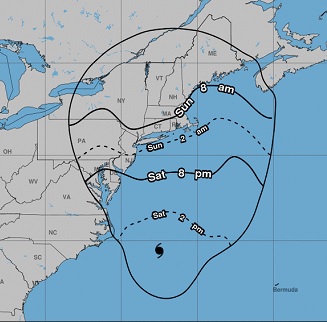
Hurricane Warnings In Effect for Parts of Long Island and southern New England
11:00 AM EDT Sat Aug 21, Location: 34.4°N 72.5°W, Moving: NNE at 14 mph – Hurricane and Storm Surge Warnings are in effect for portions of Long Island, New York, and southern New England with Henri. Henri is expected to accelerate northward on Saturday and make landfall in Long Island or southern New England on Sunday. In addition to hurricane conditions and dangerous surge, heavy rainfall may lead to considerable flooding in parts of New England Sunday into Monday. >click to read< – National Weather Center, >click here< 11:10
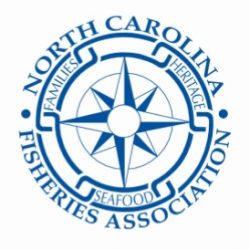
North Carolina Fisheries Association Weekly Update for August 20, 2021
Legislative updates, Bill updates, Calendar, >Click here to read the Weekly Update<, to read all the updates >click here<, for older updates listed as NCFA >click here<
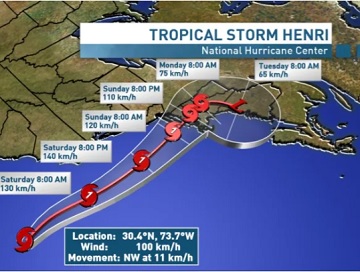
Prince Edward Islanders urged to prepare for tropical storm Henri
The National Hurricane Center’s latest on the track for Henri was issued Friday at noon AT. It says to expect sustained winds of 100 km/h, and predicts warm waters and atmospheric conditions will see the storm strengthen to hurricane status Friday night or early Saturday. “The latest guidance shows potential landfall anywhere from Cape Cod to near NYC on Sunday,” says CBC meteorologist Jay Scotland. “Henri is then expected to track east toward the Maritimes after weakening and transitioning to post-tropical early next week. It is still far too early to offer much certainty on this storm’s exact path through Atlantic Canada or its impact on our local weather. Please stay tuned for updates!” >click to read<16:10
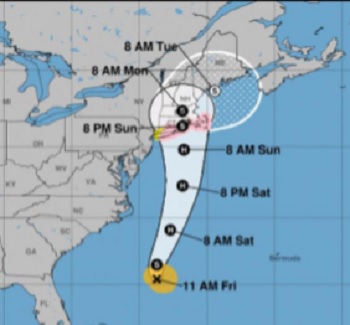
U.S. Coast Guard urges preparedness for Tropical Storm Henri
Boston — The Coast Guard urges all mariners to prepare for Tropical Storm Henri before its predicted Sunday landfall. The National Oceanic and Atmospheric Administration predicts Henri to have wind speeds equal to or exceeding 39 mph. Storm Surge and Hurricane watches are in effect for portions of the United Stated –>click to read<-The Coast Guard is reminding the public of these important safety messages: Port conditions change based on weather forecasts, and current port conditions can be viewed on the following Coast Guard homeport webpage: >click to read>14:15<
Athearn Marine Agency Boat of the Week: 62′ Steel Longliner, 500HP Cummins, with Federal Permits
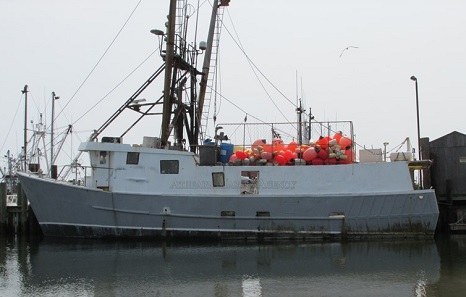 To review specifications, information, and 7 photo’s >click here< , To see all the boats in this series >click here< 10:27
To review specifications, information, and 7 photo’s >click here< , To see all the boats in this series >click here< 10:27

Offshore wind farms will have ‘major’ impacts on commercial fishing. Meanwhile, in New Bedford,,,
Development of the South Fork Wind Farm off the coast of Rhode Island would will have an overall “major” adverse impact on commercial fishing, according to a newly released federal study.,, Mark Philips, a commercial fishermen operating out of Greenport, cast doubt on the notion that climate change and fishing presented greater threats than the turbines themselves to his fishing activities.,, With wind farms planned from Maine to North Carolina, he sees his fishing options collapsing, even if, as the study points out, planners identified and excluded the most productive fishing grounds from the wind-energy areas. >click to read< – New Bedford fishermen, officials question New York offshore wind areas as auction nears >click to read< – 09:24
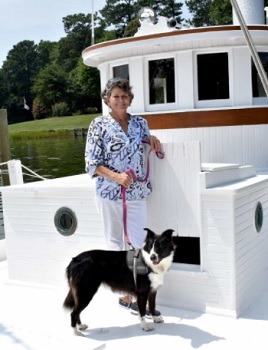
Daughter of Reedville Fisherman’s Museum Founder Named President
Passion, love of a cause and, and energy – Becky Haynie of Reedville, Va. checks all three boxes for the Reedville Fishermen’s Museum where she was recently elected president of the board of directors. Becky’s passion and love of the job comes from her late father Wendell Haynie who passed away Dec. 20, 2020. Wendall, his brother Braxton and Alice Butler spearheaded the formation of the Greater Reedville Association in 1988, which led to the creation of the museum.,, “My father grew concerned that so many artifacts were disappearing off the boats and that there would not be any left for posterity,” she said. “He wanted to create a home to secure and display them. I want to make sure that home is secure too. >click to read< 09:05

U.S. Coast Guard responds to Haiti for humanitarian aid following 7.2 earthquake
Haitian’s government requested Coast Guard assistance following a magnitude 7.2 earthquake. The Coast Guard committed numbers of air and surface assets to help in transporting medical personnel and supplies, and transporting critically injured citizens to facilities needing a higher level of care in Port au Prince, Haiti. Photos, >click to read< 19:39
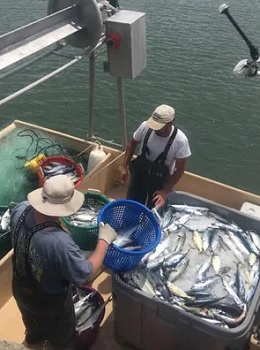
“We’re in pretty bad shape,” Commercial fishermen, fishing industry decline over the past 20 years
North Carolina commercial fishermen have complained for decades that government regulations and a variety of other factors threaten their livelihood and have them headed the way of endangered species. Glenn Skinner of Newport, executive director of the North Carolina Fisheries Association an advocacy group of commercial fishermen, said statistics back that up. “These declines are the result of many different factors. with regulations, the fear of future regulations or outright bans on commercial fishing gears being a significant factor,” Skinner said. He said public perception and political agendas drive the regulations. >click to read< 11:26
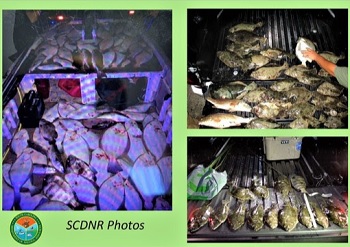
South Carolina: Multiple people, businesses charged for illegal commercial fish harvest and sales
James Wooten of Bluffton, Dawson Loper of Bluffton, and David Festerman of Griffen, GA are each facing multiple charges for illegally harvesting and selling flounder, tripletail, sheepshead, and red drum. 42 fish were seized during the arrest. Restaurants buying the fish were also implicated. Chef Eric Seaglund at Hudson’s Seafood House in Hilton Head “was charged with one count of unlawful purchase of a saltwater fishery product, and one count each of possessing undersized tripletail and undersized flounder.” >click to read< 08:32
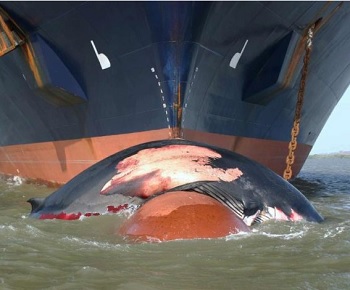
While cargo shipments boom, ship strikes imperil whales in California and worldwide
Earlier this year, horrific photos of two fin whales pinned to the hull of an Australian naval ship gained worldwide attention. The vessel had been conducting exercises in the waters near San Diego. The two bodies, one 65 feet long, the other just 25 feet, were draped over the hull. “Anywhere you have major shipping routes and whales in the same place, you are going to see collisions,” said Russell Leaper, an expert with the International Whaling Commission. “Unfortunately, that’s the situation in many places.” While gray whales and humpbacks make up 70% of the reported strikes in the government’s database, it’s the endangered and threatened populations such as North Atlantic right whales and the gargantuan Pacific blues that concern scientists the most. For those whales, each death comes with a risk of population or species extinction. >click to read< 12:06
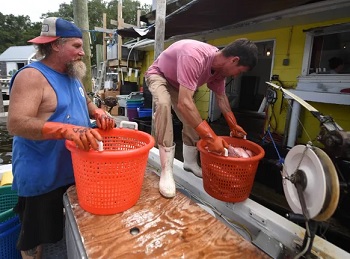
Potter’s Seafood carries on the “historic heritage” of Southport
The small yellow building tucked in the corner of Southport’s Yacht Basin represents what’s left of the once prominent and bustling seafood industry in the town. The building is home to Potter’s Seafood, an institution in Southport that’s been selling local seafood since 1899. Royce Potter is carrying on the family tradition as the fifth generation of Potters to catch and sell seafood along the waterfront of Southport. The town, located at the mouth of the Cape Fear River, once revolved around the fishing industry but now relies on tourism and Potter’s is the last of its kind. Video, photos, >click to read< 10:22

Scallop boat Captain William Francis Phaneuf, “Cape Cod Bill,” 72 has passed away
William Francis Phaneuf, “Cape Cod Bill,” 72, died Saturday, July 31st at Tobey Hospital in Wareham while holding the hand of his number one caregiver and youngest daughter Nichole. He was the son of Mildred (Myers) Phaneuf and the late John H. Phaneuf. He was a Navy Veteran and served during the Vietnam War. In his later years, he made a home for himself in Wareham, MA. Affectionately known as “Cape Cod Bill” to the most hard-core and rugged guys in the fishing industry, Billy was a proud, seasoned fisherman who honed his craft in his early years, from quahogging and bay scalloping in Bourne, MA, and later leading the toughest of crews as a scallop boat captain out of New Bedford, MA. Through the years, Billy ventured out for every type of fishing up and down the East Coast. He was an artist, he created beautiful paintings and illustrated short stories for his children. He loved to make music and never left home without his harmonica. >click to read< 22:16
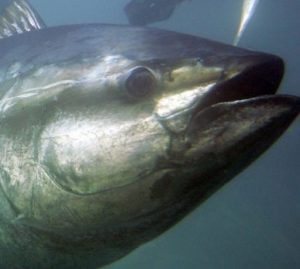
The Bluefin Tuna Trophy angler season closed in March. Normally it would last into June.
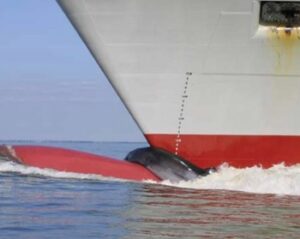
Cargo vessels endanger North Atlantic right whales off Port of Savannah
Cargo vessels operating off the increasingly busy Port of Savannah are the primary violators of speed limits intended to protect the critically endangered right whales,,, The report comes as North American Right Whales again experience a declining population. NOAA lastest report on conservation efforts, issued December 2020, cites two leading causes of injuries and death as: A vessel strike, meaning the whales’ bodies may be sliced or chopped by ships’ propellers; and getting tangled in fishing gear,,, Canada has joined the U.S. in issuing rules intended to protect right whales from ship collisions. >click to read< 08:41
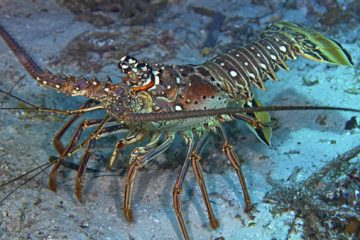
Spiny lobster season kicks off amid an unexplained population drop
The Caribbean spiny lobster commercial fishery in Florida average more than 5 million pounds per year,,, Valued at more than $40 million, the spiny lobster fishery is the second most lucrative commercial fishery in the state, behind shrimp.,, Since the 1990s, the population of the Caribbean spiny lobster has decreased 20%, which matters, not only to fisheries and spiny lobsters, but also to the entire food chain of Florida’s waters. “They’re a main food item for every other organism in the Florida Keys. Everything wants to eat little lobsters from snapper, grouper, even some herons. Matthews said while the American lobster is a “mean, nasty animal” not afraid to “fight to the death,” the Caribbean spiny lobsters are just the opposite. “They love to be in groups. They defend each other, and they are very social animals. >click to read< 12:04
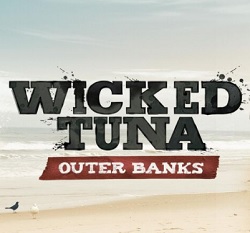
Occupational Change! From Wall St. to the T.V. Tuna Fleet!
Tuna fisherman Captain Bobby Earl was fishing off the coast of North Carolina last summer when his boat exploded, a saga that the Baysider chronicles in this season of Wicked Tuna: Outer Banks, a fishing reality show. While Earl counts escaping the blazing boat as among “the most surreal experience[s] of my life,” the Wall Street manager turned commercial fisherman has had a rather unusual life trajectory. Earl was born and raised in Bayside, Queens, before rising through the ranks on Wall Street. When the housing market crashed in 2008, Earl got fired from his job as a regional manager for Bank of America investments. 2008 changed my life too. >click to read< 11:44
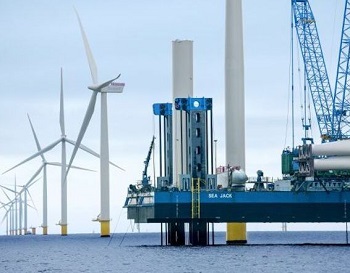
Fake ‘Green’ Energy: So Much Spent On Wind & Solar For So Little Return
Wind and solar are not just costly they are entirely useless. Never in the field of energy generation has so much been spent, by so many, for so little return. Forget the colossal and endless subsidies, forget the community division, forget the environmental destruction and landfills full of toxic blades and panels and start with the fact that wind and solar are simply incapable of delivering electricity as and when we need it. On that score, we’ll hand over to John Hinderaker for a look at wind and solar power’s utterly pathetic performance in the USA. At AmericanExperiment.org, my colleague Isaac Orr deals a double-barreled blow to the fantasy of “green” energy. First, after all of the hype surrounding wind and solar energy, where did Americans actually get their energy in 2020? >click to read< 09:20
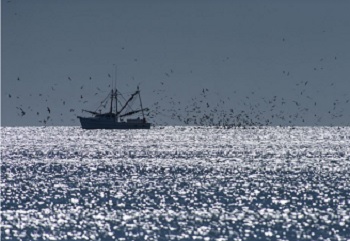
North Carolina commercial fishermen landed less seafood last year
In 2020, 42.9 million pounds of fish and shellfish were sold, a decrease of 19% from 2019 and about a 23% decrease from the previous five-year average, according to the Division of Marine Fisheries. The decrease in commercial harvest was linked to a 41.3% decrease in hard blue crab landings from 2019, which may be related to COVID-19 impacts. The Division of Marine Fisheries said several fishermen told officials that they found it difficult to move blue crabs at the beginning of the state’s stay-at-home order when many restaurants were closed. >click to read< 15:26






